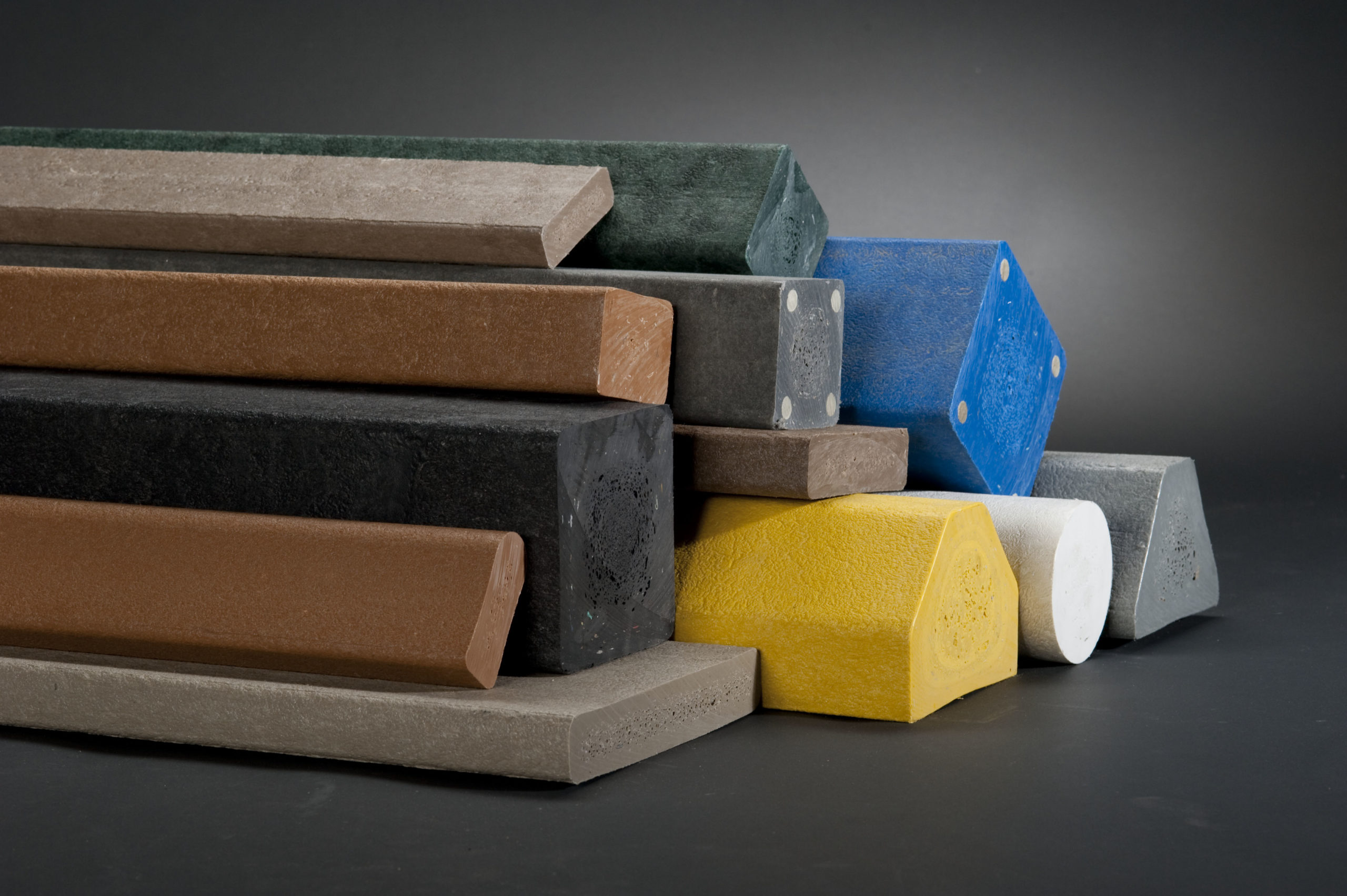Composites: The Future of Lasting Building Materials
Composites: The Future of Lasting Building Materials
Blog Article
Opening the Ecological Benefits of Recycled Compounds in Building And Construction and Style
In the realm of building and design, the utilization of recycled composites holds considerable assurance for boosting sustainability practices and lowering environmental effect (composites). By incorporating these innovative products, there is a possible to resolve vital problems such as waste reduction, energy conservation, and a reduction in carbon impact. The change towards a much more lasting future in these sectors hinges on unlocking the complete potential of recycled composites. This conversation will discover the multifaceted advantages and obstacles related to incorporating recycled compounds right into building and construction and design, using a glimpse into the transformative opportunities that exist ahead.

Environmental Impact Reduction
The reduction of environmental influence via making use of recycled composites in construction and design plays a crucial duty in sustainable methods. By incorporating recycled compounds into building materials, the building market can considerably decrease its carbon impact and add to a more green future. These sustainable materials, made from repurposed plastics, timber fibers, or various other recycled elements, supply a feasible option to typical construction products without endangering on top quality or toughness.
Recycled composites assist divert waste from garbage dumps and lower the need for removing resources, thus saving natural deposits. In addition, the manufacturing process of these compounds often takes in much less power and discharges fewer greenhouse gases compared to producing virgin products (composites). This shift in the direction of utilizing recycled composites not just lessens environmental injury but additionally advertises a circular economy by motivating the reuse of products that would certainly or else be discarded
Waste Reduction
With a focus on decreasing waste in building and construction and style, the integration of recycled composites supplies a sustainable option to lower ecological impact. Waste reduction is a crucial element of lasting practices, and using recycled compounds presents a chance to attain this goal efficiently. By making use of materials that have actually already offered their initial objective, such as recycled plastics or recovered wood fibers, the building and construction and design sectors can substantially decrease the amount of waste produced and sent to landfills.
Recycled compounds have the prospective to draw away significant amounts of waste from conventional disposal techniques, adding to a more circular economy where resources are made use of successfully. Additionally, the manufacturing process of recycled composites often takes in less energy and creates less emissions contrasted to virgin materials, even more decreasing the ecological impact of building and layout tasks.
Implementing waste reduction approaches through the consolidation of recycled composites not just aids in preserving natural sources yet likewise advertises an extra sustainable method to structure and making for a greener future.
Power Preservation
Including recycled composites not just lessens waste in construction and style yet additionally plays a critical duty in boosting energy conservation methods within the sector. The use of recycled composites in construction can considerably add to energy conservation via different methods. First of all, the production of virgin products commonly needs substantial energy inputs, whereas making use of recycled compounds takes in much less power, consequently lowering general energy intake. In addition, integrating recycled composites can add to far better insulation residential properties in structures, lowering the demand for extreme home heating or air conditioning, and consequently lowering power use for climate control. The lightweight nature of numerous recycled compounds can lead to lighter frameworks, requiring much less energy for transportation and installation. By promoting the use of recycled compounds in building and style, the industry can make considerable strides in the direction of attaining power effectiveness and decreasing its carbon footprint, inevitably adding to a much more lasting constructed environment.
Carbon Footprint Decrease
Enhancing sustainability techniques via the use of recycled composites in building and design dramatically minimizes the carbon impact of the market. By integrating recycled materials into the manufacturing of compounds, the need for virgin resources lowers, bring about lower power usage and greenhouse gas discharges associated with conventional production processes. This reduction in carbon impact is essential in combating environment modification and advertising an more extra eco-friendly method to building and design.
The carbon footprint decrease attained through the adoption of recycled compounds lines up with the worldwide press in the direction visit their website of sustainable techniques and the reduction of industrial emissions. Eventually, by focusing on the integration of recycled compounds, the sector can make substantial strides in lowering its carbon impact and contributing to a more sustainable future.
Lasting Future
The combination of recycled compounds in building and style not just addresses immediate environmental problems yet likewise lays a solid structure for a sustainable future in the sector. By including recycled composites right into building products and products, the building and construction and style sectors can considerably lower their reliance on virgin sources, leading to a much more round economy. This change in the direction of sustainability is important for minimizing the ecological impact of conventional building and construction methods, which frequently result in high degrees of waste generation and resource depletion.

Verdict
To conclude, recycled composites supply considerable environmental benefits in construction and style by lowering environmental impact, reducing waste, saving power, reducing carbon impact, and promoting a sustainable future. Welcoming using recycled compounds can contribute to an extra environmentally-friendly approach to building and layout, ultimately causing a much more lasting and greener future for all.
The reduction of ecological influence via the usage of recycled compounds in building and construction and design plays a vital duty website link in lasting practices.With a focus on minimizing waste in building and design, the assimilation of recycled composites uses a sustainable service to decrease ecological impact. By promoting the use of recycled composites in building and layout, the industry can make significant strides in the direction of attaining energy effectiveness and minimizing its carbon impact, eventually contributing to a much more lasting constructed environment.

Report this page